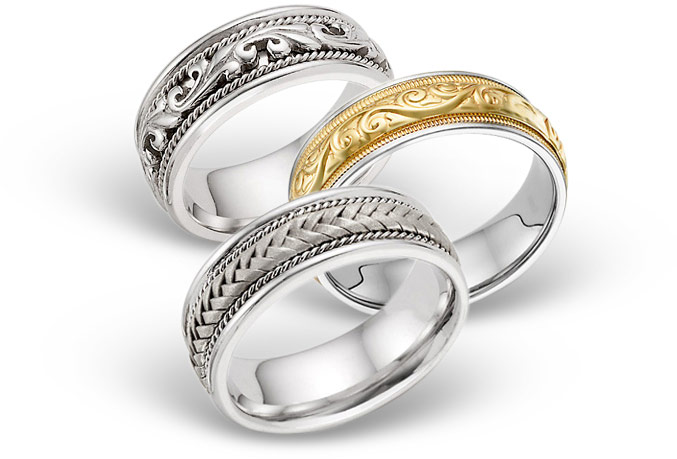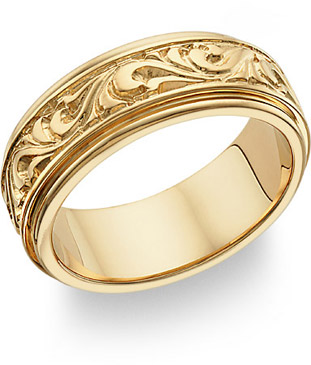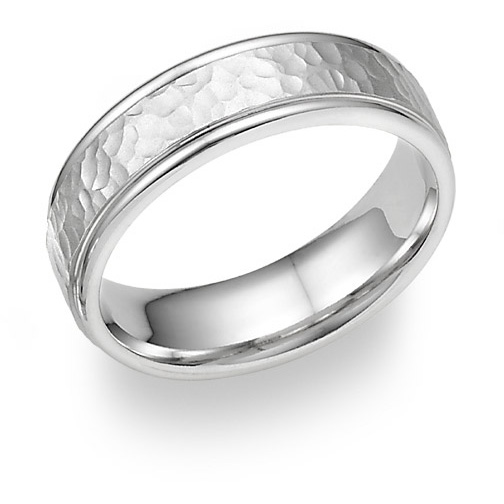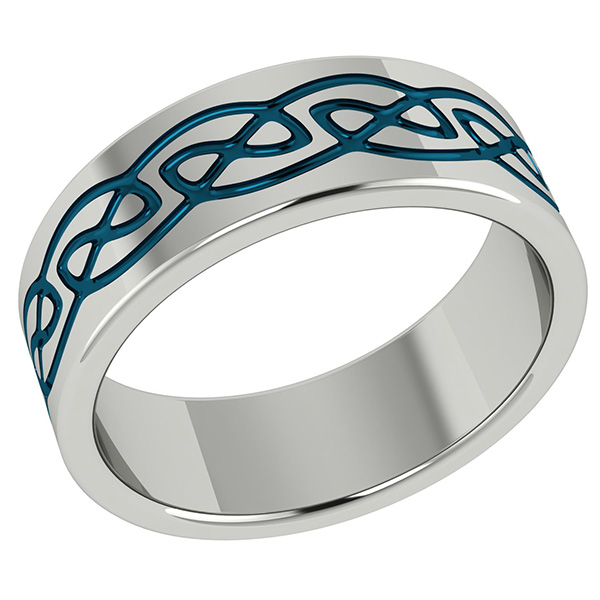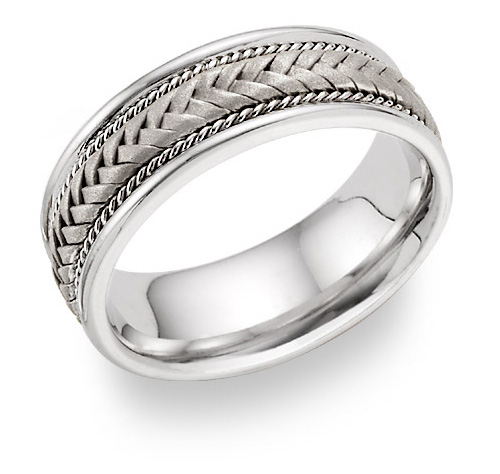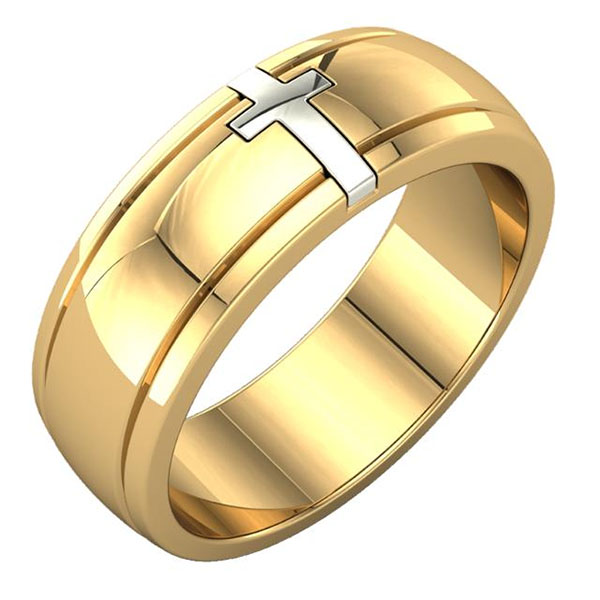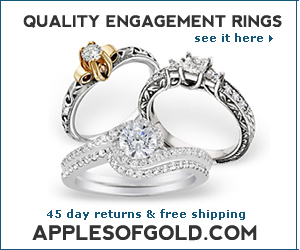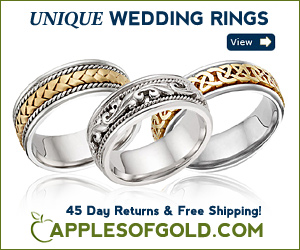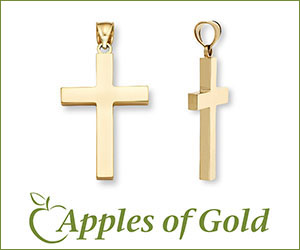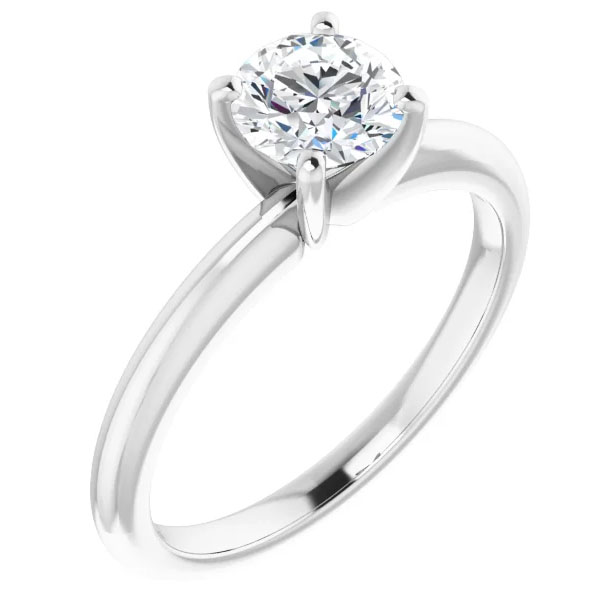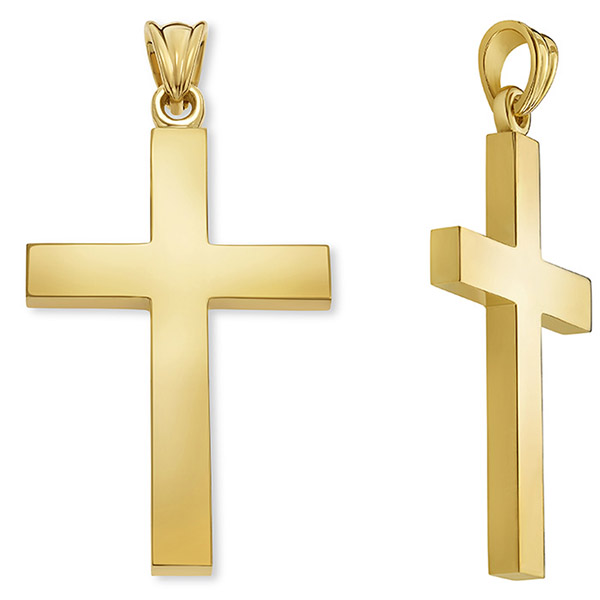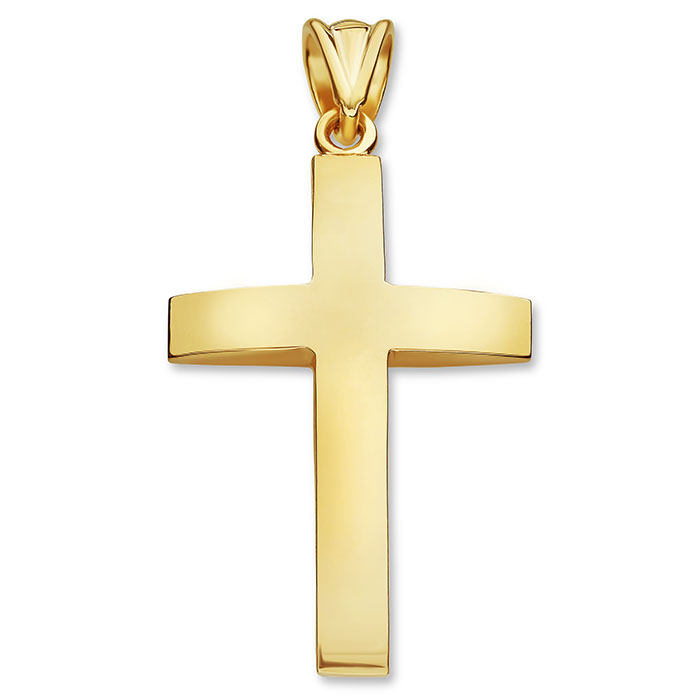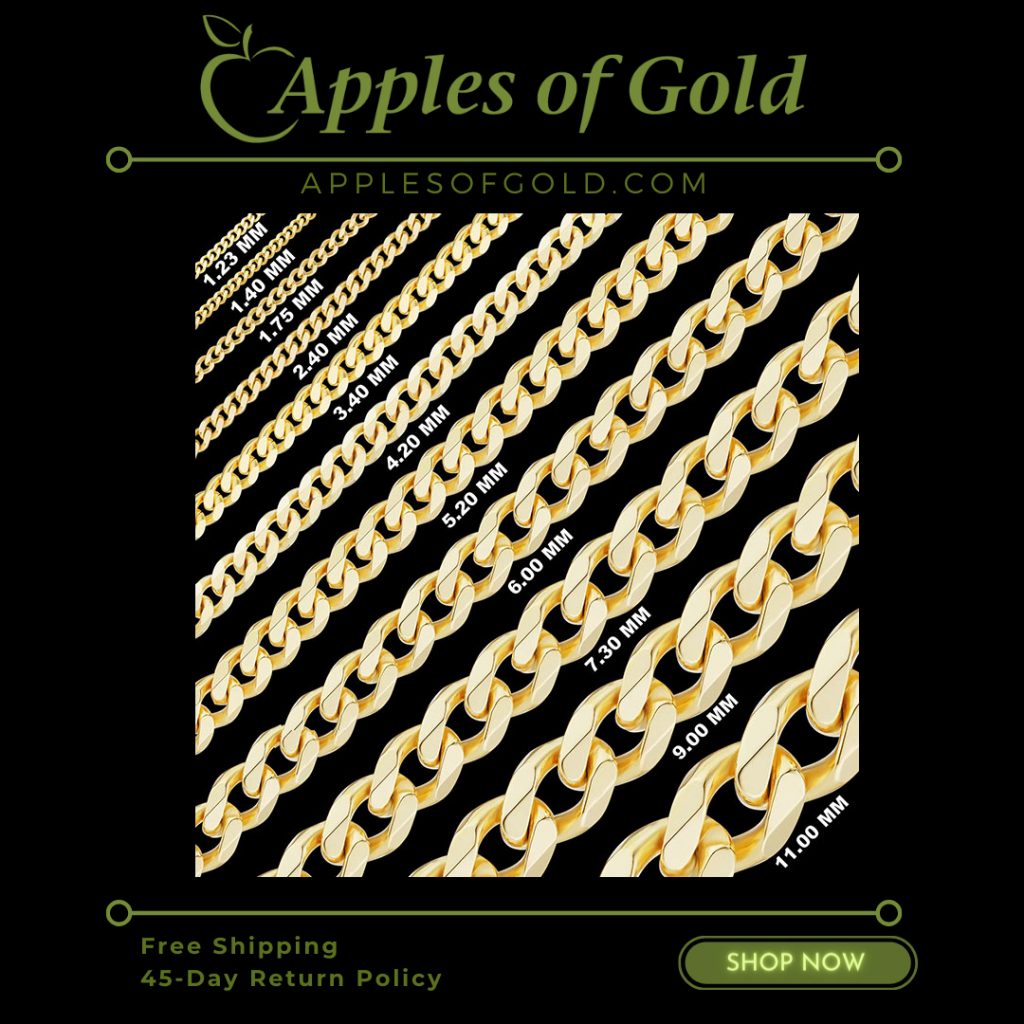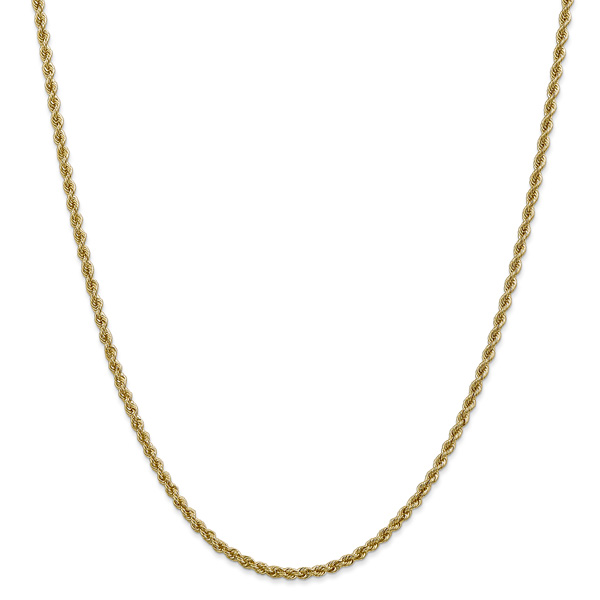The Best Precious Metal for Wedding Bands
Shopping for wedding bands can be a fun and exciting endeavor centered around your upcoming, momentous Big Day. What wedding ring will you and your future spouse hope to wear forever? Answering this question can be an adventure in shopping but it can also pose some challenges. Where does one start? Which precious metal is best and most suited to your needs and stylistic sensibilities? What are the advantages and disadvantages of each?
You may have already narrowed your selection down to your preferred style of ring and you may know your ring size, but which precious metal is best for your wedding ring?
We’ve narrowed it down to the top 4 precious metals (gold, platinum, titanium and silver) and detailed the advantages and disadvantages of each metal so that you can make an informed decision, for arguably the most important jewelry you will ever buy.
Gold Wedding Bands
Gold is the most popular precious metal for wedding bands because of it’s relatively fair price and value as well as for its beautiful aesthetic qualities. But gold comes in a variety of colors, from yellow, white or even rose gold, as well as different purity levels like 14k, 18k or even 22k. Which gold color and karat is right for you?
White Gold Wedding Bands
Most people love the color of white gold wedding bands, as it has increasingly become the popular trend of wedding bands. However, keep in mind that a small percentage of the population is allergic to base metals like nickel, which are often in white gold wedding rings. So if you have skin sensitivities or allergies to nickel, you may want to consider a hypoallergenic choice, such as yellow gold, platinum or titanium, which we discuss below.
Yellow Gold Wedding Bands
Yellow gold is a classic precious metal and has been in use for thousands of years—in fact, since Biblical times for both jewelry and as money. Yellow gold is often mixed with copper, rather than nickel, which gives it the yellowish-reddish color that you are so accustomed to normally seeing. The advantage of yellow gold wedding bands is that you can wear it all the time and even swim or shower it without damaging it. Chlorine in swimming pools and city water can also react with white gold in certain instances, whereas with yellow gold, that is never a concern. It is a timeless, durable classic.
Rose Gold & Tri-Color Wedding Bands
Rose gold wedding bands are another great option in the gold category. Rose gold is yellow gold that is usually mixed with copper as the balancing alloy. This gives your ring a permanent, subtle rose or pinkish hue.
An alternative is also mixing rose, yellow and white gold to create tri-color gold wedding bands. These tend to be very popular, particularly when you look at intricate, woven designs such as in the tri-color gold braided wedding band ring, shown above. You can also opt for a simple, plain rose gold wedding band, which utilizes the classic half-domed band but is in rose gold instead.
Platinum Wedding Bands
Platinum is a coveted precious metal and one that is rarer and considerably more expensive than gold. Platinum wedding bands tends to feel heavy, because they are substantial and pure, with 95% purity and 5% base metals when it comes to pure 950 grade platinum vs. 14k gold which is 14 of 24 parts pure or 18k gold which is 18 of 24 parts pure, requiring more base metals. Platinum is an advantageous metal for wedding bands because it is completely hypoallergenic and a great choice for those who want white jewelry, as opposed to yellow.
Titanium Wedding Bands
Finally, titanium is another metal that is used in modern jewelry, including wedding rings. While titanium is also completely hypoallergenic, there are some key differences between this greyish-white metal and platinum. The most noticeable different is that titanium wedding bands are very durable but extremely lightweight. You may have heard of aircraft titanium, which is titanium used for airplanes and other flying machines. Since titanium is so lightweight but strong, it makes it a viable choice for aircraft. The same lightweight and durable jewelry is used in titanium wedding bands.
Silver Wedding Bands
Silver wedding bands are also available for those who prefer a less expensive white metal, as an alternative to white gold or platinum. Some simply prefer sterling silver because the rest of their jewelry ensemble is silver and is their preferred precious metal for jewelry.
The advantage of silver is the price; however, the disadvantage is that it can tarnish over time. Some do not mind the patina or light tarnishing and this can also be minimized by intermittent polishing and cleaning, with something as simple as jewelry polishing cloth.
The main advice we have if you are purchasing a silver wedding band ring is to make sure that the jeweler you purchase from guarantees that it is .925 pure sterling silver. All Apples of Gold Jewelry silver jewelry is guaranteed to be authentic .925 sterling silver.
You have many options to choose from, including alternative metals like cobalt or alternative gold colors like rose gold or a combination of metals such as 18k gold and platinum or even sterling silver wedding bands. Make a choice that fits both your fashion sense, lifestyle, budget and functional considerations, like the other metals used in your wedding rings.
Related Posts
Jewelry Education, Jewelry Guide, Wedding Bands, Wedding Bands for Men, Wedding Bands for Women, Wedding Jewelry, Wedding Rings



